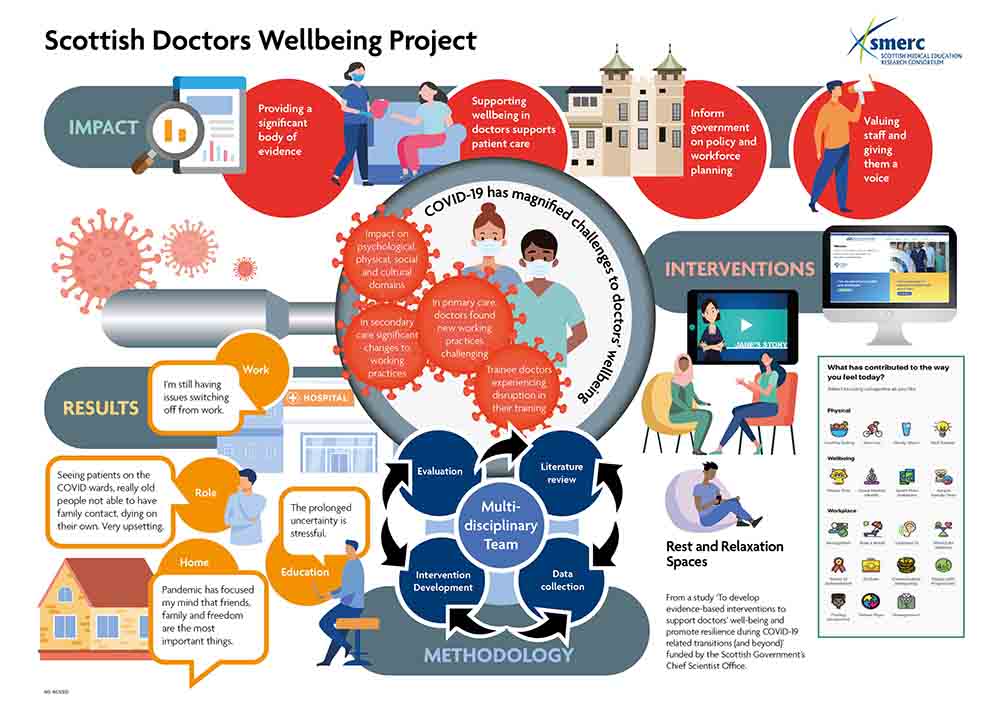An interactive app, rest and relaxation spaces, and informal, in-person psychological support are among new ways that have been suggested to ease the stress associated with the Covid-19 pandemic on doctors and trainee medics.
Doctors’ wellbeing has suffered significantly since the beginning of the Covid-19 pandemic according to new research from the University of Aberdeen and the Scottish Medical Education Research Consortium (SMERC) which found that the wellbeing of doctors and trainee medics has been overwhelmingly negatively impacted.
The team of Health Scientists from the University in collaboration with the 4 other Scottish Medical Schools (Universities of Dundee, Edinburgh, Glasgow and St Andrews) as well as NHS Education for Scotland report the findings in the Chief Scientist Office (CSO) Rapid Research in Covid report.
The CSO call was developed to support research at Scotland’s universities, and the University of Aberdeen received almost £1 million to fund research to tackle the Covid-19 pandemic.

Dr Kim Walker from the Centre for Healthcare Research Education and Innovation (CHERI) in the School of Medicine, Medical Sciences and Nutrition at the University was awarded £197,080 of the fund in May 2020 to develop evidence-based interventions to support doctors’ wellbeing and promote resilience during the pandemic and beyond.
The team interviewed and collected diaries from 100 doctors across all 14 regional health boards.
Community and hospital-based specialties were included with interviewees ranging from new graduates to retired doctors who had returned to practise in the pandemic. The outcomes of the interviews were used to inform key stakeholder expert panels in developing and prioritising interventions.
Five interventions were prioritised for development as a result of the interviews, these include: the provision of rest and relaxation spaces for staff to relax and also eat and drink in an area exclusive to them; the roll out of the “How Was Your Day” app in which users rate how they feel throughout the day.
Dr Anita Laidlaw, co-investigator, from the School of Medicine at the University of St Andrews, said of the project: “We used a theoretically-informed and evidence-based intervention strategy to develop the interventions to support doctors’ wellbeing and resilience during this study.”
The lead researcher in Aberdeen, Dr Kim Walker further explained: “The Covid-19 pandemic has magnified already existing challenges to doctors’ wellbeing and it is extremely important to give the workforce a voice, listen to what they are telling us and, fundamentally take action to address their concerns.
“We know that in supporting wellbeing in doctors, we then in turn support patient care so it is vital that we do all we can to listen and act upon what we learn.”
